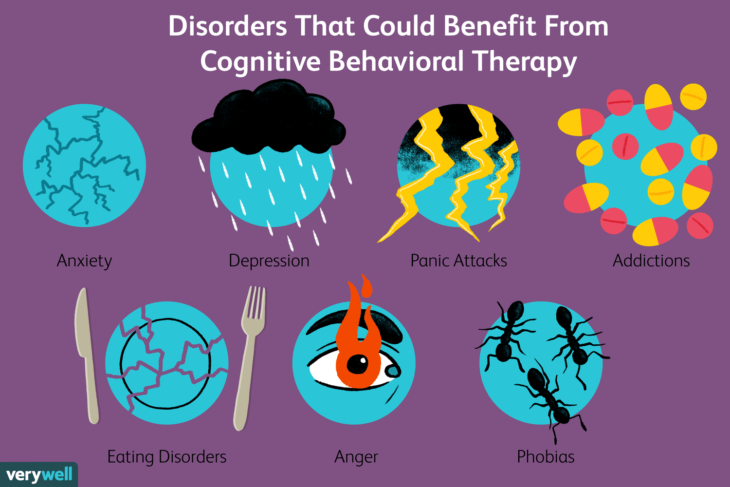
The Overview Of Cognitive Behavioral Therapy (CBT)
Cognitive Behavioral Therapy (CBT) is one of many different types of talk therapy. It was developed back in the 1960s by a psychiatrist, Dr. Aaron Beck. In his clinical work with patients, Dr. Beck began to notice a distinct connection between a person’s thoughts and feelings. He also noticed from his work that people usually have a set of beliefs or attitudes which dictate their thoughts. Additionally, patients who were struggling with depression and other disorders often engaged in various types of maladaptive thoughts or thinking errors, such as jumping to conclusions or all-or-nothing thinking. We tend to act based on our feelings. By learning to identify and challenge thinking errors and erroneous beliefs, we can begin to make changes that will positively impact our feelings and actions.
Over the past several decades, CBT has become a very widely used type of psychotherapy. Dr. Beck used it extensively to treat patients with major depression, but it can also be very effective for a variety of disorders or issues including, but not limited to, anxiety, panic disorder, PTSD, OCD, substance abuse, problems with sleep, relationship problems, chronic pain, anger problems, eating disorders, phobias, and social anxiety disorder. CBT therapy for addiction has also been very effective for a number of patients.
The name stems from the fact that its primary emphasis is on thinking, and elements of behavioral therapy are also utilized in the process. There are different types like Dialectical Behavior Therapy (DBT) and Rational Emotive Therapy.
Unlike psychodynamic therapy models, which focus on unconscious processes, Cognitive Behavioral Therapy CBT focuses on people’s thoughts, attitudes, and beliefs – our cognitions. A CBT therapist helps a person understand how those cognitive processes affect how he or she handles emotional problems, views situations, and behaves. For example, a woman struggling with depression may have the belief that she is worthless. This belief significantly impacts her thoughts, her reactions to various situations, and her feelings. As a result of these thoughts and feelings, she may behave by keeping herself very guarded on a date. This tends to create a vicious circle, reinforcing her negative but erroneous) belief.
The therapist will likely have her look at her past and find all the ways in which she has been a winner in some way or another – thus challenging the validity of her underlying belief. The therapist will also have her come up with other possible explanations as to why the man didn’t ask her out again. For example, perhaps the man thought she wasn’t interested or met someone else with whom he had more in common, or because she resembled his ex-wife, and that made it uncomfortable for him. All of those possible reasons have nothing to do with her being a loser.
A key tenet is the idea of automatic thoughts, which are fraught with emotion and tend to automatically come to mind in various situations. To use the example above, the thought “I’m a loser – no man ever wants me!” is very likely an automatic thought which the woman often has whenever something goes wrong or someone rejects her in some way. Rather than consider all the other possibilities, she automatically concludes bad things happen because she is a loser and men never want her.
People often don’t even realize how many automatic thoughts go through their minds. These thoughts are typically negative if the person is angry, hurt, or upset about something. The automatic thoughts aren’t usually realistic and make the person feel worse. The CBT helps the person recognize these automatic thoughts and challenge their validity, as these thoughts are what cause painful feelings.
